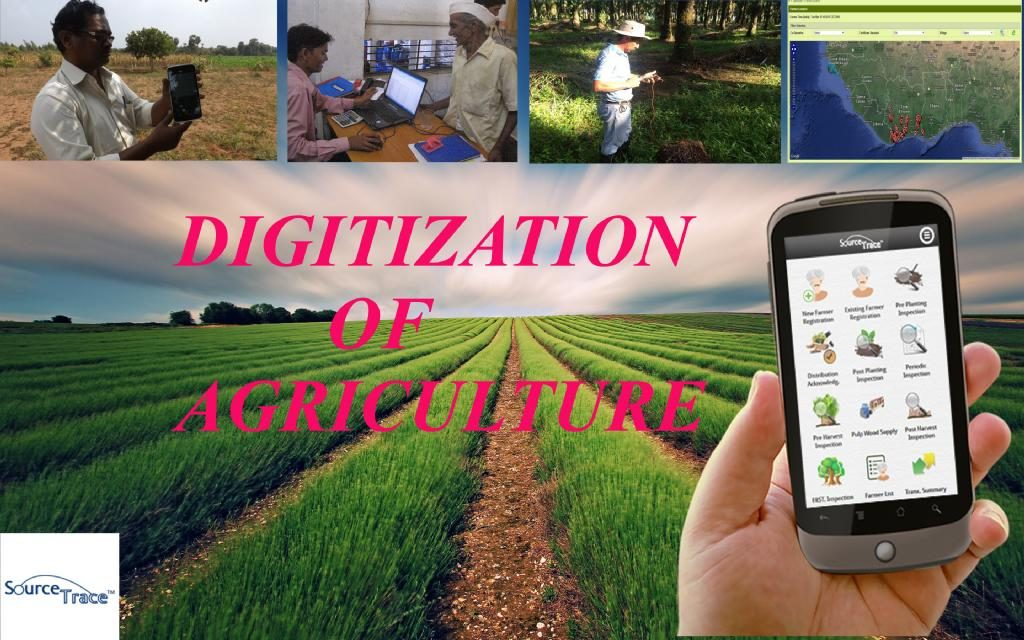The agricultural sector is the backbone of Nigeria’s economy, employing approximately 70% of the workforce and contributing about 24% to the country’s GDP. However, Nigerian farmers face numerous challenges, including limited access to information, inadequate technology, and inefficient extension services. The advent of digital agricultural extension has brought new opportunities for improving agricultural productivity and farmers’ livelihoods. This article explores the challenges and opportunities of agricultural digital extension in Nigeria.
What is Agricultural Digital Extension?
Agricultural digital extension refers to the use of digital technologies, such as mobile phones, computers, and the internet, to provide farmers with access to information, advice, and services that can improve their agricultural practices and productivity. Digital extension platforms can include mobile apps, SMS services, online forums, and social media, among others.
Challenges of Agricultural Digital Extension in Nigeria
Despite the potential benefits of digital agricultural extension, several challenges hinder its adoption and effectiveness in Nigeria. Some of these challenges include:
- Limited Access to Technology: Many Nigerian farmers, particularly in rural areas, lack access to digital technologies, such as smartphones and internet connectivity. This limits their ability to benefit from digital extension services.
- Low Digital Literacy: Many farmers in Nigeria lack the skills and knowledge to effectively use digital technologies, making it difficult for them to access and utilize digital extension services.
- Language Barriers: Nigeria has over 250 ethnic groups and languages, which can create a challenge for digital extension services that are often designed in English or a few dominant languages.
- Poor Infrastructure: Inadequate infrastructure, such as electricity and internet connectivity, can limit the effectiveness of digital extension services in Nigeria.
- Limited Content Relevance: Digital extension services often lack content that is relevant to the specific needs and contexts of Nigerian farmers.
Opportunities of Agricultural Digital Extension in Nigeria
Despite the challenges, agricultural digital extension presents numerous opportunities for improving agricultural productivity and farmers’ livelihoods in Nigeria. Some of these opportunities include:
- Increased Access to Information: Digital extension services can provide farmers with access to timely and relevant information on agricultural best practices, market trends, and weather forecasts.
- Improved Advisory Services: Digital extension platforms can connect farmers with experts and advisors who can provide personalized guidance and support.
- Enhanced Market Access: Digital platforms can link farmers to markets and buyers, enabling them to sell their products more efficiently and at better prices.
- Increased Efficiency: Digital extension services can automate many tasks, such as data collection and analysis, freeing up time for farmers and extension agents to focus on more critical tasks.
- Scalability and Cost-Effectiveness: Digital extension services can reach a large number of farmers at a lower cost compared to traditional extension methods.
Examples of Successful Digital Extension Initiatives in Nigeria
Several initiatives have successfully implemented digital agricultural extension in Nigeria. Some examples include:
- Agricultural Transformation Agenda (ATA): The ATA uses mobile phones and other digital technologies to provide farmers with access to information, advice, and services.
- e-Wallet System: The e-Wallet System provides farmers with subsidized inputs, such as seeds and fertilizers, through a digital platform.
- Farmcrowdy: Farmcrowdy is a digital platform that connects farmers with investors and provides them with access to finance, inputs, and markets.
- Hello Tractor: Hello Tractor is a digital platform that provides farmers with access to tractor services, enabling them to mechanize their farming operations.
Way Forward
To fully harness the potential of agricultural digital extension in Nigeria, several steps can be taken:
- Invest in Digital Infrastructure: Invest in digital infrastructure, such as internet connectivity and electricity, to support the growth of digital extension services.
- Develop Relevant Content: Develop digital content that is relevant to the specific needs and contexts of Nigerian farmers.
- Build Digital Literacy: Build the digital literacy of farmers and extension agents to enable them to effectively use digital technologies.
- Encourage Public-Private Partnerships: Encourage public-private partnerships to support the development and implementation of digital extension services.
- Monitor and Evaluate: Continuously monitor and evaluate the effectiveness of digital extension services to identify areas for improvement.
In conclusion, agricultural digital extension presents numerous opportunities for improving agricultural productivity and farmers’ livelihoods in Nigeria. However, several challenges need to be addressed to fully harness its potential. By investing in digital infrastructure, developing relevant content, building digital literacy, encouraging public-private partnerships, and monitoring and evaluating effectiveness, Nigeria can unlock the benefits of digital agricultural extension and transform its agricultural sector.

